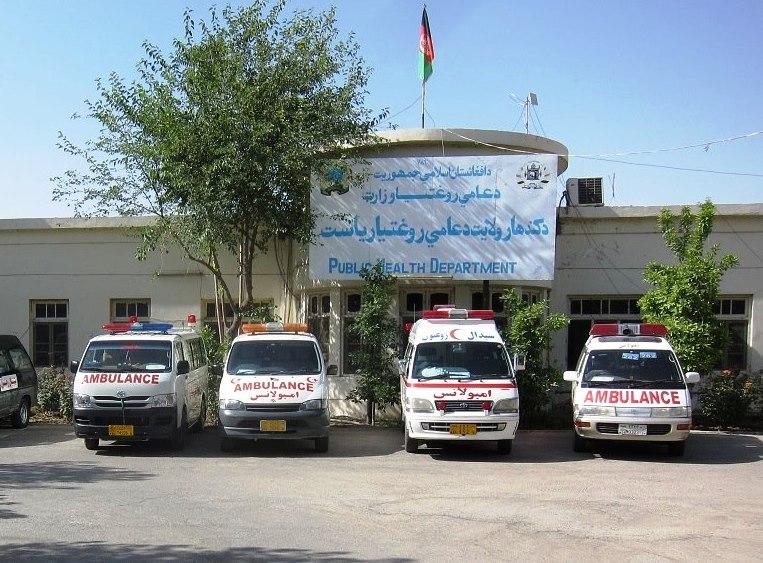KANDAHAR CITY (Pajhwok): More than 60 percent of the population in southern Kandahar province lacks access to healthcare services and residents say they have to sometimes travel to Pakistan or India for treatment.
While patients from neighboring provinces also come for treatment to Kandahar where residents say there are no facilities to diagnose some particular diseases despite 16 years of the post-Taliban governments.
Haji Zahir Jan, the district council head for Shah Walikot district, told Pajhwok Afghan News that the available health services in the district did not meet all local residents’ requirements.
He said most of the district residents were poor but still they traveled to the capital, Kandahar City, for treatment.
“Roads of the district are in bad condition which adds to the difficulties in shifting patients to hospital on time,” he said.
There is not even a single healthcare facility in two districts of the province namely Registan and Shorabak. Residents of these districts say they not only lack healthcare facilities but many other facilities including development projects.
Najibullah, a resident of Khorabak district, told Pajhwok Afghan News that there was not even a single clinic in the district.
“People have to take their patients to Pakistan where they face many problems during the journey,” he said.
Haji Mohammad, a resident of Registan district, said the government had ignored the district over the past 15 years.
Khorabak and Registan are located 230 kilometers and 350 kilometers respectively south of Kandahar city near the Durand Line. Roads leading to the two districts are un-asphalted and insecure — the main reason behind the lack of primary livelihood services.
Kandahar residents say their population recently reached 2.5 million individuals and a 350-bed hospital, around 50 state-run healthcare centers and 20 private healthcare centers are not enough to cope with the situation.
Ghulam Sakhi Nooriwal, a resident of Kandahar city, said the Mirwais Zonal Hospital in Kandahar City built in 1978 was providing health services to 6.7 million people of five provinces in the zone.
He called the hospital one of the country’s ‘busiest’ despite lacking staff and having a small building.
“There is only one healthcare clinic each in some populated districts and people find it hard to reach such facilities due to complicated geographical locations,” he added.
Nooriwal said there were no diagnoses centers for some specific diseases in Kandahar and people there were obliged to travel to Kabul, Pakistan or India for treatment of such diseases. “Unfortunately the private sector also did not invest in this area”, he regretted.
He said though private healthcare centers had proven helpful, their quality of services remained poor. He said the private sector could open diagnosis and treatment centers for specific diseases such as heart, kidney, cancer and others.
Acting public health director Dr. Mohammad Azim Zamaryal acknowledged government-offered health services in Kandahar were inadequate.
“In addition to Kandahar city, patients from 94 areas in districts where there is not even a single clinic come here to treatment,” he said.
He asked the Ministry of Public Health (MoPH) and aid organizations to extend health services to areas where these facilities were limited or did not exist.
He said the current healthcare facilities were on provincial level, but patients from neighboring provinces also arrived in Kandahar for treatment.
“Unfortunately we don’t have a maternity hospital on the zonal level. Many clashes and traffic incidents happen, but we have no emergency hospital, we also don’t have diagnosis and treatment centers for some specific illnesses,” he said.
However, he said efforts were underway to extend healthcare services to areas where they were not available. He said construction work on a 350-bed hospital that was started three years ago had been 95 percent completed.
Once completed, the new hospital would reduce the load of patients on Mirwais Hospital by 50 percent. “This hospital is being built in Aino Mina area of Kandahar city on 86 acres of land and will cost 524 million afghanis,” Zamaryal added.
He said the hospital would operate on zonal level covering Helmand, Uruzgan, Zabul and some other nearby provinces.
Ambulance service would be also launched in near future in Kandahar to deal with emergency situations, he said.
According to the Kandahar public health department, 496 doctors, nurses, midwives and other health professionals are working in the province.
The number of female health professionals is very limited to deal with all female patients in Kandahar where 33 percent of the population have access to health services.
mds/ma








GET IN TOUCH
NEWSLETTER
SUGGEST A STORY
PAJHWOK MOBILE APP